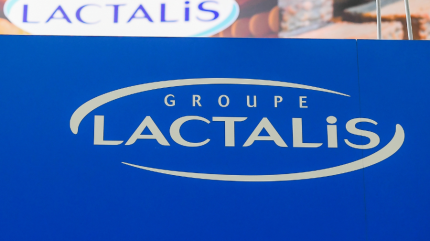
Lactalis is funneling further investment into Brazil, designed to boost production of cheese and butter in the state of Minas Gerais.
The French dairy giant already earmarked the equivalent of around $42m for the same state in November across seven plants, in a project stretching through 2026.
Now Lactalis is allocating €46.2m ($50m) for its dairy manufacturing facility located in the city of Uberlândia in Brazil’s south-eastern state of Minas Gerais.
Lactalis confirmed the latest investment round will include a new manufacturing facility at the Uberlândia site for the local semi-hard cheese variety prato, along with an additional production line for butter. The projects are due to be completed by 2027.
In a brief statement, Lactalis said the prato cheese factory will have a production capacity of 12,000 tonnes per year. The new butter line will increase output by 3,600 tonnes a year to deliver an “installed capacity” of 10,000 tonnes by 2027.
The Uberlândia plant was also one of the seven recipients of the previous investment in Minas Gerais state announced in November.

US Tariffs are shifting - will you react or anticipate?
Don’t let policy changes catch you off guard. Stay proactive with real-time data and expert analysis.
By GlobalDataA local government statement, forwarded to Just Food, Investment Monitor’s sister publication, by Lactalis in November, said the investment programme was geared toward “modernising, expanding and optimising” the seven industrial units.
As well as the Uberlândia site, Lactalis operates production units in Minas Gerais located in Antônio Carlos, Guanhães, Pará de Minas, Pouso Alto, Sabará and Sete Lagoas.
More recently, Lactalis said it would be investing 313m reais ($54.7m) to expand its dairy production facilities in Paraná in southern Brazil.
Lactalis said the investment in Paraná would fund a new UHT milk production line at its Londrina facility, and at the same time expand its Carambeí plant to boost output of yogurts, fermented milk, dairy beverages, and desserts.
Besides Londrina and Carambeí, Lactalis operates a plant in Paraná’s Pato Branco.
As a private business, Lactalis only updates markets on its financial performance once a year.
In April 2024, the Laval, Pays-de-la-Loire-headquartered company reported turnover rose 4.3% in 2023 to €29.5bn.
Cheese was the largest contributor at 39% of turnover, followed by milk at 19% and chilled dairy products at 15%. Butter and cream contributed 12%.
Chairman Emmanuel Besnier said at time that consolidated net profit “remained weak”, coming in at €428m, albeit an increase of 11% from the prior 12 months.
Profit stood at €384m in fiscal 2022, down 14% year-on-year.
Lactalis explained in a statement that 2023 “was marked by a change in consumer purchasing behaviour, reflected in a fall in sales volumes and a specific appetite for private labels – to the detriment of national brands, especially in Europe”.
That same year marked the completion of Lactalis’ purchase of the Fonterra-Nestlé joint-venture company in Brazil.
To get the transaction over the line for Dairy Partners Americas, or DPA Brasil, the French group entered a licensing agreement, a condition put forward by the competition regulator – the Administrative Council for Economic Defense (CADE).
Lactalis and DPA formed a licencing agreement with Brazilian dairy business Tirol for dairy desserts, petit suisse and fermented milks under a so-called seven-year merger control agreement (ACC) covering the brands Batavo and Batavinho.
Ten years earlier, Lactalis entered Brazil for the first time when Parmalat, its part-owned Italian dairy business at the time, acquired gourmet cheese specialist Balkis Indústria e Comércio de Laticínios through Lactalis’ Brazilian subsidiary. Lactalis went on to build up its stake in Parmalat into full ownership.
In 2014, Parmalat then acquired a slew of dairy plants and assets from Brazil’s BRF – now one of the country’s major meat processors – including the Batavo, Elegê and Cotochés brands.
Then in 2019, the French group completed a deal for Brazilian dairy cooperative Itambé Alimentos, and in 2021 bought Confepar Agro-Industrial.



